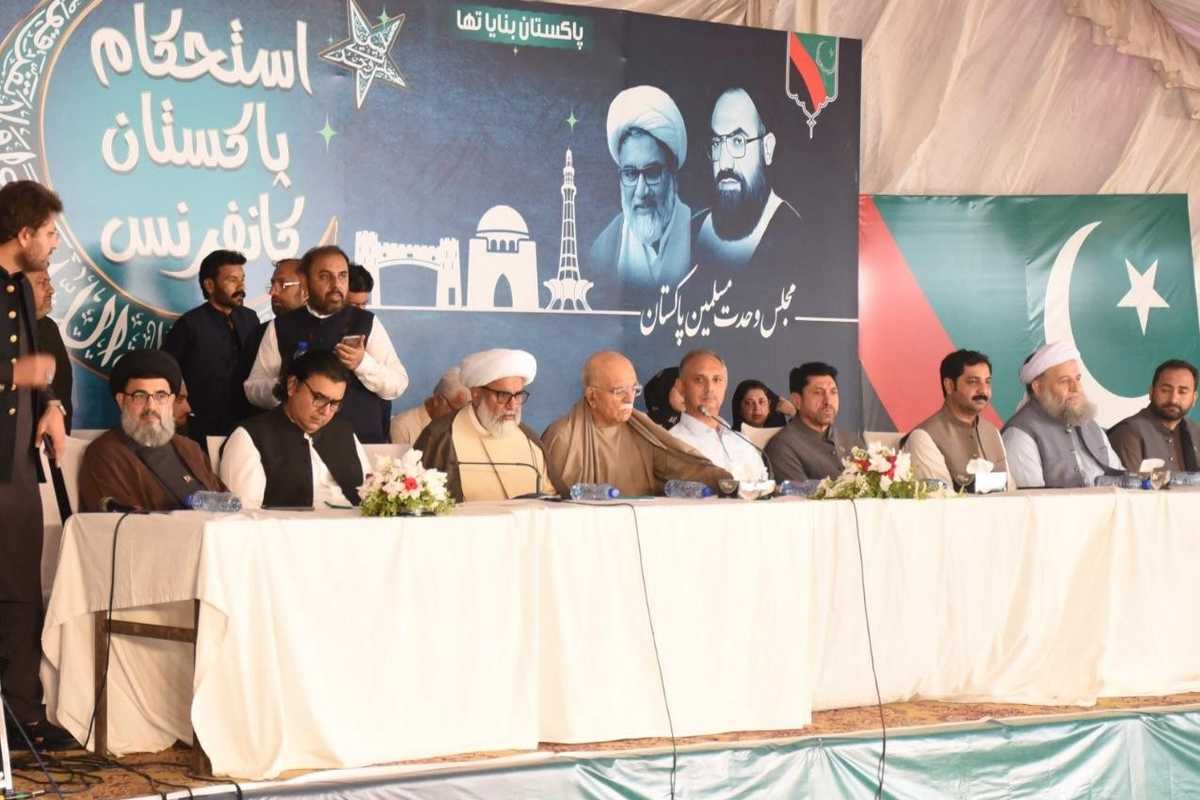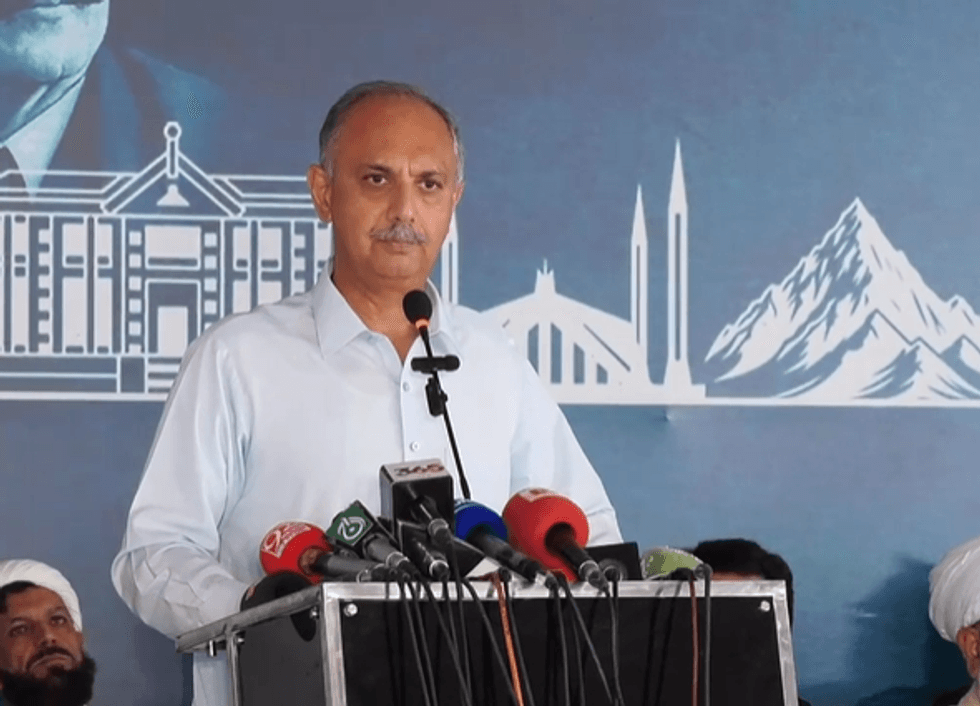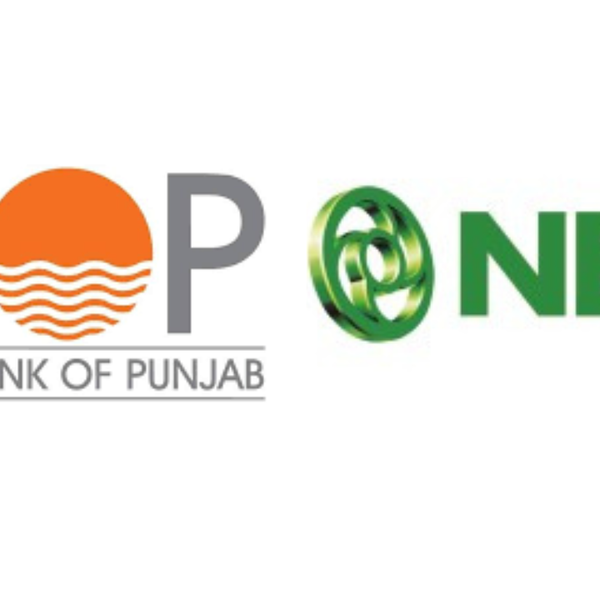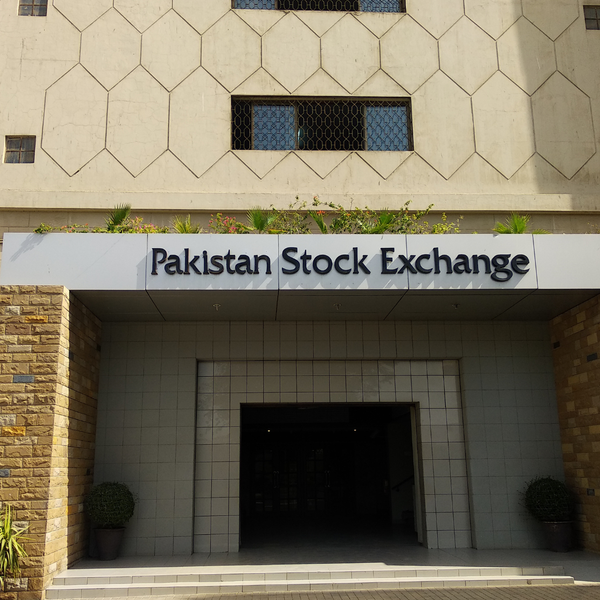Pakistan can't be a ‘hard state’ without rule of law, says opposition leader
Istehkam Pakistan Conference unites MWM, PTI, Sunni Ittehad Council and others in Islamabad for rule of law push

Javed Hussain
Correspondent
I have almost 20 years of experience in print, radio, and TV media. I started my career with "Daily Jang" after which I got the opportunity to work in FM 103, Radio Pakistan, News One, Ab Tak News, Dawn News TV, Dunya News, 92 News and regional channels Rohi TV, Apna Channel and Sach TV where I worked and gained experience in different areas of all three mediums. My journey from reporting to news anchor in these organisations was excellent. Now, I am working as a correspondent with Nukta in Islamabad, where I get the opportunity of in-depth journalism and storytelling while I am now covering parliamentary affairs, politics, and technology.

Istehkam Pakistan Conference in Islamabad, organized by the Majlis Wahdat-e-Muslimeen (MWM).
MWM media cell
Pakistan cannot become a ‘hard state’ without rule of law, Opposition Leader Omar Ayub said on Sunday, warning that political instability and elite privilege were weakening national security.
He made the remarks at the Istehkam Pakistan Conference in Islamabad, organized by the Majlis Wahdat-e-Muslimeen (MWM). The event brought together leaders from several opposition parties, including Pakistan Tehreek-e-Insaf (PTI), the Sunni Ittehad Council, and the Awam Pakistan Party.
Ayub alleged that President Asif Ali Zardari had "sold Sindh’s water" during a Green Initiative meeting in July 2024 at the President’s House. “Federal ministers have confirmed it,” he said. He added that a resolution for canals on the Indus River was submitted on March 12, but claimed inflation was rising in Pakistan while global fuel prices were falling.
He criticized the current government, calling it a “Form 47 government” with no real mandate, and accused it of prioritizing luxury over public welfare.
“Stability will only come when there is rule of law. Without it, Pakistan cannot become a hard state,” Ayub said. “There should also be a strong defense for stability.”
He said if there were real stability in the country, former prime minister Imran Khan and other political leaders and workers would not be in jail.
“It is a pity that freedom of expression has been taken away. The media exists, but broadcasting is banned,” Ayub said.
He also blamed poor security and intelligence failures for recent tragedies, such as the Jaffer Express incident. “State institutions are busy chasing political workers, neglecting their real responsibilities,” he said.

Senator Allama Raja Nasir Abbas Jafri, newly elected chairman of MWM, said national stability depended on people’s trust in elected representatives, institutions and the Constitution.
“The law is a sacred trust, and its respect is obligatory on every citizen and institution,” Jafri said. “Only transparent, timely and free elections can lead the nation towards political stability and democratic supremacy.”
Mahmood Khan Achakzai, head of Tehreek-e-Tahafuz Aayeen Pakistan, said Pakistan must return to the Constitution to survive.
“The intelligence agencies will also have to be accountable,” he said. “A government that comes into existence through intimidation and fraud cannot be accepted.”
He urged the opposition to bring a no-confidence motion against the speaker, boycott “fake committees,” and present the “real facts before the international community.”
Salman Akram Raja, central general secretary of PTI, said Pakistan was “breathing in a false, hypocritical system.” He praised opposition unity against what he called “oppression.”
Former senator Mustafa Nawaz Khokhar said the country faced a severe crisis. “Measures like the ban on freedom of expression, insecurity in Parachinar, Balochistan, KP and southern Pakistan, and the closure of canal water in Sindh reflect dangerous trends,” he said.
Dr Noor-ul-Haq Qadri, former minister for religious affairs, called justice essential for any functioning nation. “Justice is one of the attributes of God, and its absence is a sign of social decline,” he said.
Sahibzada Hamid Raza, head of the Sunni Ittehad Council, criticized the government for remaining silent on Gaza. “Have our missiles become silent? Have the launching pads become ineffective?” he asked.
He also defended PTI founder Imran Khan, saying he had united the nation beyond political or sectarian divides.
Raza warned that a transport ban imposed by the Balochistan government on movement from Quetta to other cities was a dangerous sign. “Who is responsible for this?” he asked.
The conference ended with a united call for restoring constitutional supremacy, justice, and civil liberties across Pakistan.







Comments
See what people are discussing